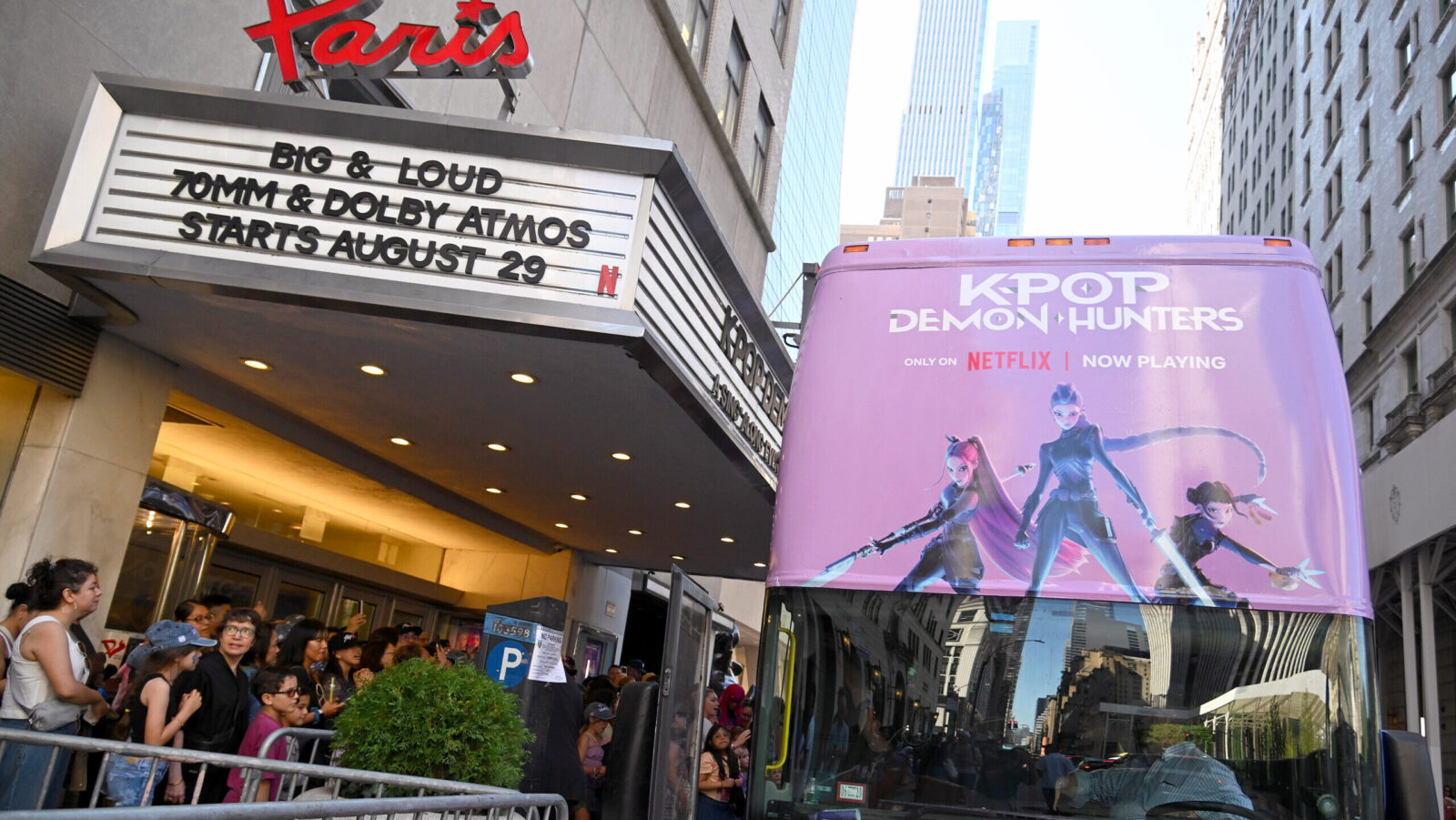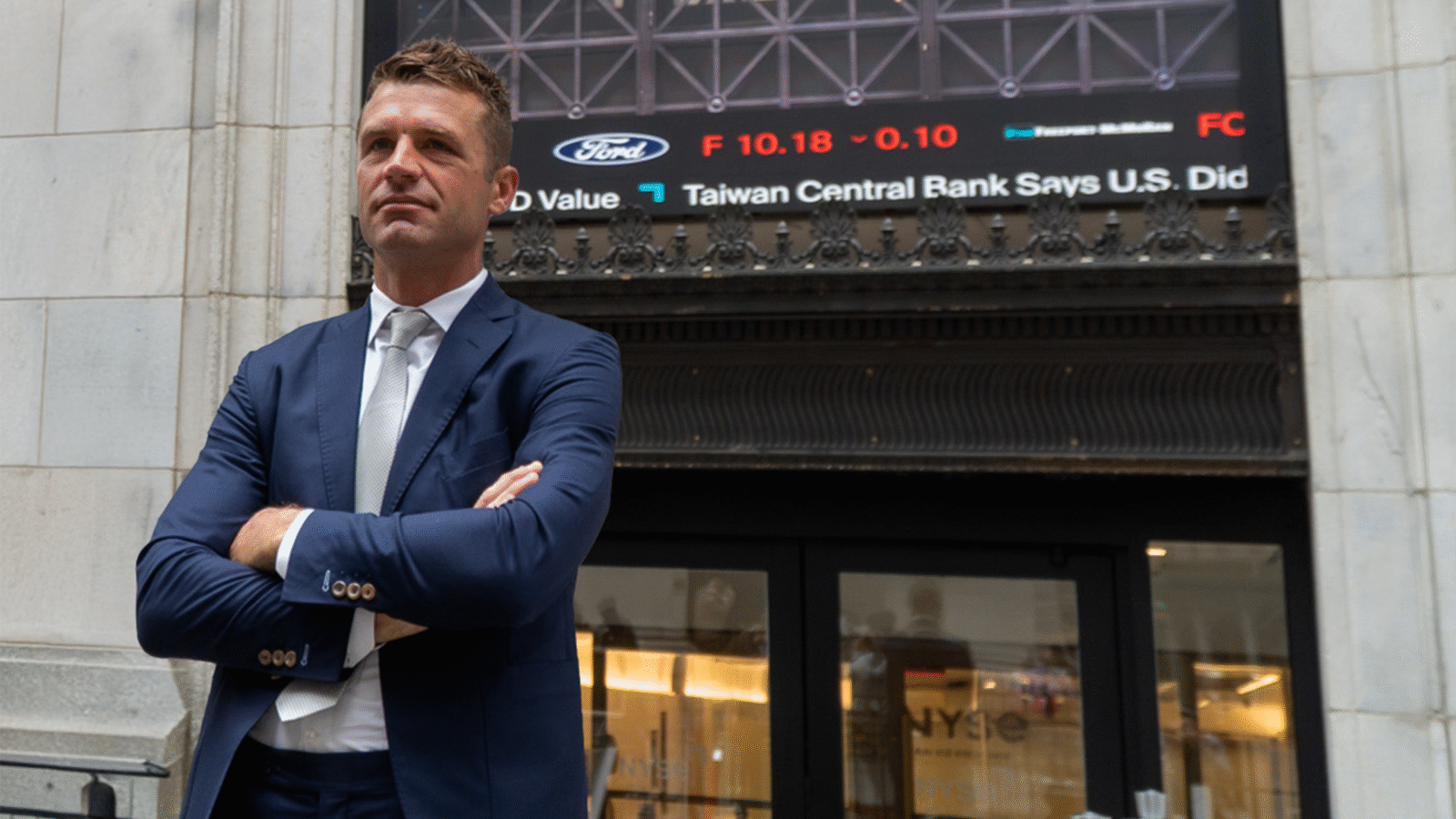Good morning, and welcome back from your final summer holiday. This year, anyway.
What’s bad for Novo Nordisk is bad for Denmark. The nation’s Ministry of Economic Affairs more than halved the country’s annual growth forecast to 1.4% from 3% before the weekend. Officials suggested a key factor is one of Denmark’s most famous companies: Ozempic-maker Novo Nordisk. Last year, the Danish economy surged 3.7%, thanks in large part to rocketing pharmaceutical exports as Novo’s blockbuster weight-loss drug took America by storm.
This year is a different story. Novo’s New York-listed shares have fallen 35% in 2025 as rivals like US-based Eli Lilly have eaten into its market share, while trials for its next-generation treatments have produced middling results. The pharmaceuticals sector is now slated to contribute just 1.3% toward growth in exports of Danish goods this year, compared with 8.1% in 2024 — the difference from year to year is like night and Dane.
Moving From ‘Netflix and Chill’ to the Red Carpet

Stranger things have happened at Netflix, but nothing like this.
Two weekends ago, the streaming giant took its ultra-popular animated movie musical KPop Demon Hunters, which debuted on its service in June, to theaters nationwide where it became a hit, soaring to the top of the US box office while raking in $18 million. Then Netflix did something even stranger: It pulled the hit from theaters before it could repeat over the long holiday weekend. It’s an interesting experiment as the company continues to tiptoe out of your living room and into the real world.
Screentime
The traditional Hollywood players have been stuck in a quagmire for years: When is the right time to make a theatrical release available at home, either through pay-per-view or a streaming service, without cannibalizing potential box office revenue? With Kpop, Netflix proved the box office release doesn’t have to come first: A streaming hit can turn into a cinema sensation. And Kpop became one without the help of AMC, the nation’s largest theater chain, which has long refused to exhibit movies also available for streaming.
The success may also challenge the assumptions of Netflix CEO Ted Sarandos, who said at a conference in May that the theatrical model is “an outdated concept.” (Sarandos has notably changed his tune when it comes to advertising and sports.)
Either way, Kpop is not the first time — and won’t be the last time — that Netflix has played footsie with the theatrical model:
- Back in 2022, Netflix gave Glass Onion: A Knives Out Mystery a limited release across 700 theaters over Thanksgiving weekend after pleas from its director, Rian Johnson, and scored nearly $14 million at the box office. But analysts say the film could’ve opened to up to $50 million over the holiday weekend with a more traditional wide release; the original film, put out by Lionsgate in 2019, had a lifetime worldwide gross of $313 million, prompting Netflix to acquire the rights to two sequels for $469 million.
- And during next year’s Thanksgiving weekend, Netflix will give its Chronicles of Narnia a two-week release in IMAX theaters at the urging of high-profile director Greta Gerwig. Gerwig’s previous film, 2023’s Barbie, grossed $1.4 billion worldwide, setting an all-time record for Warner Bros.
(Note: Netflix gives some films limited theatrical releases to meet end-of-season awards eligibility standards.)
Netflix House of Cards: At the box office or not, Netflix is clearly interested in catering to the extroverts among us. After a successful run in London’s West End, Netflix brought its Stranger Things: The First Shadow play to Broadway earlier this year. And last week, it announced the arrival of permanent “Netflix House” experiences in Philadelphia and Dallas later this year, with a third landing in Las Vegas in 2027. The 100,000-square-foot destinations will feature shopping and entertainment experiences, such as virtual reality rooms and mini golf, all branded with familiar Netflix IP (such as Kpop and Squid Game). It’s not Disneyland, yet. But it’s a start.
Are You Ready To Disappear Online?
Countless spam emails. Robo-calls that never end. Identity thieves circling like vultures. It’s enough to make you want to erase yourself from the internet.
With Incogni, you finally can. They can’t delete your awkward Facebook posts from 2016, but they can:
- Remove your data from sites used by scammers and cybercriminals.
- Monitor and keep erasing your info as new risks appear.
- Stop your details from resurfacing after a data breach.
With Incogni’s Unlimited Plan, if you spot your personal data online, just send them the link — they’ll make it disappear.
Oversharing is the internet’s hobby. Protect yourself from being its next victim.
Everyone’s Joining Big Tech’s Market Rally
When the big dogs are away, the little guys come out to play.
After a summer-long stock market rally primarily driven by a handful of the usual Big Tech suspects, the worm is starting to turn. During August, Wall Street finally began spreading the love — rotating into small-cap companies and sectors outside the bounds of the AI trade.
Rally Caps
So what changed? A speech in Jackson Hole, Wyoming, by Federal Reserve Chairman Jerome Powell has given investors hope that an interest rate cut may be just around the corner, making both small-cap and economically sensitive stocks more attractive. Meanwhile, after going all in on Big Tech bets, the physics of finance suggest that investors have no choice but to diversify their portfolios.
And the timing is just right: According to Truist data seen by Axios, small-cap stocks tracked by the S&P 600 have underperformed large caps by 12% over the past 12 months. That’s the largest dislocation in performance this century. Meanwhile, small caps are 40% cheaper than large caps — good for the biggest discount since the dot-com bubble burst at the turn of the century. After said bubble burst, “subsequent small-cap returns were among the highest in history,” Gregg S. Fisher, founder and portfolio manager at Quent Capital, recently wrote in a note to clients. Through Friday, the small-cap Russell 2000 index has climbed nearly 9% since the start of August.
Meanwhile, among the S&P 500 big leagues, the non-tech firms have been getting the most love recently:
- The S&P 500’s consumer discretionary sector index climbed roughly 7% in August, while the materials sector climbed over 6%, and the financial sector index climbed 4.7%. The information-technology sector index climbed just 2.4% last month.
- More proof of the diversification? After trailing the benchmark S&P 500 index for most of the year, the S&P 500 Equal Weight Index rose roughly equally in August, about 3.6%.
Forward Thinking: The rotation may also be causing some distortion. While Nvidia crossed the $4 trillion market cap mark in July and continued to hover at that level in August, its forward price-earnings ratio bears a striking resemblance to two stocks decidedly outside the cloud of AI hype: Walmart and Costco. Walmart had a forward PE of nearly 37 at market close Friday, just trailing Nvidia’s 40 and behind Costco’s ratio of nearly 47. A Bloomberg analysis last week noted that investors view the stocks as performing particularly well in tough economic times, as both companies’ brands communicate a value proposition that shoppers will likely find attractive. It posited, however, that a “safety paradox” now puts them at risk of correction.

Put This Stock On Your Watchlist. They’re a private company, but Pacaso just reserved the Nasdaq ticker “$PCSO.” Pacaso brings co-ownership to the $1.3T vacation home industry. They’ve already made more than $110M in gross profits to date. No surprise the same firms that backed Uber and Venmo already invested in Pacaso. Invest in Pacaso before the opportunity ends September 18.*
Pentagon Innovation Unit Grapples With Leadership Shakeup Amid Arms Race With China
The internet that powers a vast digital world. The GPS on your phone that gets you around the physical one. These are just two of the many everyday technologies that the United States military played a key role in developing (see also: microwave ovens, duct tape and aviator sunglasses).
But last week, the most cutting-edge corner of the Pentagon had an abrupt leadership change. Defense Innovation Unit (DIU) director Doug Beck resigned unexpectedly at a time when the wider Department of Defense is trying to counter increasingly savvy Chinese military research and development.
En Garde
The DoD has never had a shortage of technological firepower. In-house innovation efforts are led by the undersecretary of defense for research and engineering, effectively a CTO, and it has its own independent research and development agency, the Defense Advanced Research Projects Agency (DARPA), which reports directly to senior leadership. DIU, which was kick-started in 2015, is unique because it has run 2,800 miles away from the Pentagon in Silicon Valley. There, it acts as a sort of bridge between the tech industry and the armed forces, with the goal of getting the military to adopt more commercial tech. Companies, of course, benefit from the potential for lucrative Pentagon business.
According to the US Government Accountability Office, DIU handed out 450 awards to companies between 2016 and 2023 to develop prototypes, with more than half of them (51%) moving on to production. It also launched a university accelerator earlier this year — a Pentagon Y Combinator of sorts — that will fund early-stage startups coming out of schools that are developing dual-use technologies (meaning they have both commercial and military applications). It will soon spread its wings to other tech hubs, as well: Last week, the Financial Times reported that the DIU plans to post liaisons in allied countries in Europe, the Middle East and Asia to search for global commercial tech worthy of adoption (in Taiwan, for example, to work with its cutting-edge drone companies). The moves come amid warnings from DoD officials about China’s own military making technological headway.
- “China is developing and integrating cutting-edge technologies—AI, hypersonic and advanced missiles, and space-based capabilities—at an alarming pace,” US Navy Admiral Samuel Paparo, who leads the US Indo-Pacific Command, told lawmakers at an April Senate hearing, adding: “China is outpacing the US in testing not only these critical technologies but also technologies from across their military industrial base.”
- Paparo also warned that China’s military is making headway in advanced manufacturing: The Middle Kingdom already has the world’s largest navy and, he said, is building ships at a rate of 6 to 1.8 compared with the US, or more than three times as fast. For fighter jets, the rate is 1.2 to 1 compared with the US.
Tug of War: Pentagon CTO Emil Michael will serve as acting director of DIU, but told media last week that he doesn’t plan on keeping the job and that the unit will remain independent. When it was founded, the DIU reported to the under secretary of defense for research and engineering, but officials complained that bureaucracy hampered its entrepreneurial mandate. After years of back and forth, Congress codified for good that the DIU reports directly to the defense secretary.
Extra Upside
- Wallet Friendly: Consumer spending — aka two thirds of US economic activity — rose 0.5% in July, thanks to steady employment that’s offsetting tariff pressures.
- New Chip on the Block: Chinese commerce giant Alibaba developed a new artificial intelligence chip to fill a void created by Nvidia’s regulatory challenges.
- What’s Keeping Finance Officers Up at Night? Every company finance leader is asking the same question right now: “How can I fund vital innovation while preserving a cash runway when investors demand profitability and every budget line faces scrutiny?” Watch the webinar on demand to see what top CFOs are doing about that.**
** Partner
Just For Fun
Disclaimer
*This is a paid advertisement for Pacaso’s Regulation A offering. Please read the offering circular at invest.pacaso.com. Reserving a ticker is not a guarantee that the company will go public. Listing on the NASDAQ is subject to approvals.

